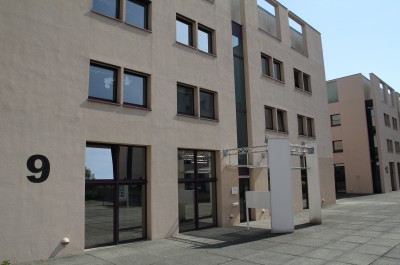| Project period |
2005 – 2007
| Project staff |
Prof. Dr. Mechthild Bereswill (Project manager)
| Funding |
Deutsche Stiftung Jugendmarke e.V.
| Cooperation partner |
Projekt “Entwicklungsfolgen der Jugendstrafe”
Dr. Linda Andersen, Roskilde University Centre
Dr. Shadd Maruna, Queen’s University Belfast
Prof. Henning Salling Olesen, Roskilde University Centre
Dr. Peter Rieker, Deutsches Jugendinstitut Halle
| Project description |
“Working in here, I’ve learned things I never knew I could do or would have fun doing.”
“The positive thing is the work, that you really go through with it, that you take it seriously. And, well, the negative side is the part about your freedom.”
“Like, outside I didn’t make it, but I wanted to make it in here. I mean use my imprisonment that way, to repeat ninth grade, ’cause I had the leaving certificate from the eighth grade and had always wanted to graduate from ninth grade, even if it meant going to evening school, I would’ve made it eventually. That’s why. Inside, if you get the chance, then you do it.”
These different statements on learning and working in juvenile detention centres are taken from interviews with male adolescents in prison. The quotes show that vocational training and employment measures in prison are not only perceived as a bind, but also as a chance. The young men quoted place an emphasis on the contrast between inside and outside: the abilities they discover and the things they trust themselves to do inside, the perseverance they have shown in prison – this is what they are sure they would not have accomplished outside, they would not have gone through with it outside, and above all, they would have judged it very differently. It is especially the second quote which points out the tension associated with the positive learning experience in prison: working is positive, the loss of freedom is negative. The interpretation of incarceration is continually shaped by this contradiction – hoping for better integration by learning and working on the one hand, and the emotionally very stressful experience of imprisonment on the other. The rigid prison structure is not only perceived as limiting and restricting, but also as supportive.
It is this contradictory situation of adolescent and young adult males with prison experience and the connected fragile processes of integration that the Fragile Transitions project takes up, drawing on results from The Consequences of Incarceration, a study conducted by the Criminological Research Institute of Lower Saxony from 1997 – 2004 and financed by the Volkswagen Foundation. In the qualitative part of the longitudinal study, 43 male prisoners in juvenile detention centres in eastern and western Germany were interviewed regarding their experience in prison and their biographies. In 30 cases, interviews were also conducted after release from prison, while multiple interviews were conducted with 20 participants. KFN is thus in possession of a unique database as the qualitative longitudinal interviews enable the biographical development processes of juvenile prisoners to be reconstructed over a period of five years. http://www.kfn.de/identqualeng.shtml
Periods of imprisonment and recidivism are not a sign of long-term failure in themselves – something confirmed by the biographical case analyses of the completed study. What counts is the biographical processing of such experience, not least in the context of institutional and informal supportive relationships. This is especially true at the time of release from prison and regarding both the associated desires for integration and the actual barriers to integration in both the vocational education and training sector and the employment market.
This precarious and in the long run extremely important transition is where the Fragile Transitions study comes in: what are the institutional and biographical constellations that promote young ex-prisoners’ integration into the working world in the longer term? This gives rise to the question of ways to develop the young men’s working abilities. These must be fostered during imprisonment and continually supported after release. The question of working abilities goes beyond the specific occupation or job and points to young people’s ability and need to develop personal autonomy. Focus is placed on the potential for integration in a group of young men whose repeated failure – even with the support and supervision of youth welfare measures and institutions – has already been widely depicted in various studies and publications. Much less is known about their biographical success in learning, personal progress and development. This also applies to associated approaches of youth welfare, probation service and help for offenders. A change of perspective is needed here, away from general assumptions regarding young losers of modernisation and towards differentiated analysis of the actual biographies of severely socially disadvantaged young men.
As part of the project, a further series of interviews is planned with topical longitudinal interviews on the learning and working experience and current employment situation of the young men involved. Comparative biographical case reconstructions are also planned.
The aim of the study is to better understand the interaction between institutional interventions and individual actions and to obtain insights for use in youth welfare research and practice and the associated fields. It will serve as an application-oriented contribution to further reform of penal law regarding juvenile offenders and the juvenile detention system. It will also provide input for use in exploring ways to improve the youth welfare landscape.

